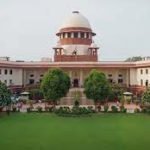The original criminal appeal, preferred by respondent no.2, had not been taken up for hearing. Despite a prior order from 15.04.2025 requesting the High Court to decide the appeal expeditiously within three months, the judgment was not delivered. The criminal appeal had been pending since 2008, and arguments were reserved for orders on 24.12.2021. The judgment was not delivered within six months of being reserved, leading the Registrar General of the High Court to report the matter to the Chief Justice. The judgment’s non-delivery for almost a year from the date of hearing was deemed “extremely shocking and surprising” by the Supreme Court.
The Supreme Court noted a recurring pattern of proceedings remaining pending and judgments not being delivered after hearing for extended periods (over three or six months).
Law Involved:
The judgment extensively refers to the principles and directions established in Anil Rai vs. State of Bihar (2001) 7 SCC 318. This precedent addressed the issue of inordinate delays in the pronouncement of judgments in various High Courts.
The sources cite existing guidelines, likely derived from Anil Rai or similar cases, particularly paragraphs 9 and 10, which emphasize:
The belief that the justice delivery system should strengthen public faith in fair play and the rule of law.
The negative impact of unexplained delays on the integrity of the justice system.
Specific procedural directives for the Chief Justices and Registrars General of High Courts regarding the monitoring and timely pronouncement of reserved judgments. These include ensuring judgments are noted with reservation/pronouncement dates, lists of unpronounced judgments are furnished monthly, and the Chief Justice intervenes if judgments are not delivered within two months, with a maximum period of three months for delivery before parties can apply for early judgment.
The judgment also acknowledges that High Courts have historically adopted the practice of pronouncing a final order without a reasoned judgment, or not delivering the judgment for a substantial period, which undermines judicial redressal.
Several other Supreme Court cases are cited, highlighting similar issues of delayed judgments, including State of Punjab and Ors. vs. Jagdev Singh Talwandi, Zahira Habibulla H. Sheikh and Anr. vs. State of Gujarat and Ors., and Balaji Baliram Mupade and Anr. vs. State of Maharashtra and Ors..
Reasoning:
The Supreme Court found the significant delay in delivering the judgment by the High Court to be unacceptable and a direct contravention of established judicial norms.
The Court reiterated that delays in judgment delivery lead to litigants losing faith in the judicial process, thus defeating the ends of justice.
It emphasized the lack of a proper mechanism for litigants to bring such delays to the attention of the concerned Bench or the Chief Justice, exacerbating the problem.
By referring to Anil Rai vs. State of Bihar, the Supreme Court underscored that the issue of delayed judgments is a long-standing concern that has been addressed previously with clear guidelines.
The Court recognized that the practice of prolonged non-delivery of judgments after being reserved or pronouncements without immediate reasons is detrimental to the judicial system.
The decision underscores the necessity for strict adherence to the principles and guidelines laid down in Anil Rai to ensure judicial accountability and timely justice.
Holding:
The Supreme Court granted leave in the present appeals. The Court disposed of the present Appeals with the following observations and directions:
The High Court was requested to decide the appeal expeditiously within a period of three months.The Chief Justice of the High Court of Judicature at Allahabad was directed to assign necessary directions.
All Registrar Generals of High Courts are directed to furnish a list of cases monthly to the Chief Justice where judgments reserved are not pronounced within the remaining part of that month. This reporting must continue for three months.
If a judgment is not delivered within three months of being reserved, the Registrar General must place the matter before the Chief Justice for orders.
The Chief Justice shall then bring it to the notice of the concerned Bench for pronouncing the order within two weeks.
If the Bench fails to pronounce the order within two weeks, the matter shall be assigned to another Bench.
These directions are in addition to the guidelines/directions issued in Anil Rai vs. State of Bihar.
A copy of this judgment is to be circulated to all Registrar Generals of all High Courts for compliance.
Ravindra Pratap Shahi vs State Of U.P
Supreme Court: 2025 INSC 1039 (DoJ 25-08-2025)






